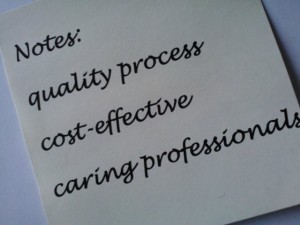 It occurs to me that just as in the rest of our lives, some of the best things in divorce are free.
Here are more than a few free items that I came up with on a recent afternoon.
Initial Consultation
Most importantly, many atttorneys and other divorce professionals offer free (or low cost) initial consultations to help you understand your options. I enjoy offering free consultations because I can make the most impact on a person’s life by helping them at the very beginning before they waste time and money.
General Divorce Information
It’s free to keep reading this blog! There are many helpful articles to help guide your decisions. You can learn what is involved in divorce and how to choose professionals to help you with the divorce process.
Read my Family Law blog called Always Family Center for free information about many Family Law topics.
Learn more about Collaborative Divorce here.
Want to look through the statute on divorce to get an overview of the law? It’s available for free here.
Go to your local library. They all have a section on divorce and other legal topics. Why not take advantage of the free books at your local library? You already paid for it with your taxes, right!
Parenting in Divorce
You can view an 8 hour online class for divorcing or separating parents called Parents Forever for free or very little cost provided by the University of Minnesota.
Children’s Expenses
Here is a link to the Minnesota Department of Human Services publication titled Understanding Child Support: A Handbook for Parents.
If you are curious about how the Minnesota Guidelines Child Support Calculator works, that’s available for free here.
If you want to look through the statute on child support to get a more in-depth view of the law, it’s available for free here.
Budgets
Do you want to know what your budget is? Just look at your checkbook or last credit or debit card statement and make a list of the most common expenses.
Thinking about moving out and living somewhere else and want to know how much it would cost? For rentals, just look online or make some phone calls from ads in the paper, all for free.
Parenting Plans
Want to create a great parenting plan? Consult with a Neutral Child Specialist. You can find one here. Look for the area titled “Find a Professional by Profession” and then chose “Child Specialist”.
Here is probably the best available court system parenting schedule guide, which happens to be from Arizona (But helpful regardless of where your kids live!). Here’s the Parenting Agreement Worksheet from the Minnesota Court system. Again from Minnesota, here is A Parental Guide to Making Child-Foccused Parenting Time Decisions.
Sending an email to your child’s other parent to tell them that you appreciate something about their parenting is free.
Picking up the phone and talking with your ex about your child’s upcoming events is free (or nearly free).
Want to search for a Collaborative Divorce attorney or financial professional or coach or child specialist? It’s right here on the Minnesota Collaborative Law Institute website.
It occurs to me that just as in the rest of our lives, some of the best things in divorce are free.
Here are more than a few free items that I came up with on a recent afternoon.
Initial Consultation
Most importantly, many atttorneys and other divorce professionals offer free (or low cost) initial consultations to help you understand your options. I enjoy offering free consultations because I can make the most impact on a person’s life by helping them at the very beginning before they waste time and money.
General Divorce Information
It’s free to keep reading this blog! There are many helpful articles to help guide your decisions. You can learn what is involved in divorce and how to choose professionals to help you with the divorce process.
Read my Family Law blog called Always Family Center for free information about many Family Law topics.
Learn more about Collaborative Divorce here.
Want to look through the statute on divorce to get an overview of the law? It’s available for free here.
Go to your local library. They all have a section on divorce and other legal topics. Why not take advantage of the free books at your local library? You already paid for it with your taxes, right!
Parenting in Divorce
You can view an 8 hour online class for divorcing or separating parents called Parents Forever for free or very little cost provided by the University of Minnesota.
Children’s Expenses
Here is a link to the Minnesota Department of Human Services publication titled Understanding Child Support: A Handbook for Parents.
If you are curious about how the Minnesota Guidelines Child Support Calculator works, that’s available for free here.
If you want to look through the statute on child support to get a more in-depth view of the law, it’s available for free here.
Budgets
Do you want to know what your budget is? Just look at your checkbook or last credit or debit card statement and make a list of the most common expenses.
Thinking about moving out and living somewhere else and want to know how much it would cost? For rentals, just look online or make some phone calls from ads in the paper, all for free.
Parenting Plans
Want to create a great parenting plan? Consult with a Neutral Child Specialist. You can find one here. Look for the area titled “Find a Professional by Profession” and then chose “Child Specialist”.
Here is probably the best available court system parenting schedule guide, which happens to be from Arizona (But helpful regardless of where your kids live!). Here’s the Parenting Agreement Worksheet from the Minnesota Court system. Again from Minnesota, here is A Parental Guide to Making Child-Foccused Parenting Time Decisions.
Sending an email to your child’s other parent to tell them that you appreciate something about their parenting is free.
Picking up the phone and talking with your ex about your child’s upcoming events is free (or nearly free).
Want to search for a Collaborative Divorce attorney or financial professional or coach or child specialist? It’s right here on the Minnesota Collaborative Law Institute website.  It occurs to me that just as in the rest of our lives, some of the best things in divorce are free.
Here are more than a few free items that I came up with on a recent afternoon.
Initial Consultation
Most importantly, many atttorneys and other divorce professionals offer free (or low cost) initial consultations to help you understand your options. I enjoy offering free consultations because I can make the most impact on a person’s life by helping them at the very beginning before they waste time and money.
General Divorce Information
It’s free to keep reading this blog! There are many helpful articles to help guide your decisions. You can learn what is involved in divorce and how to choose professionals to help you with the divorce process.
Read my Family Law blog called Always Family Center for free information about many Family Law topics.
Learn more about Collaborative Divorce here.
Want to look through the statute on divorce to get an overview of the law? It’s available for free here.
Go to your local library. They all have a section on divorce and other legal topics. Why not take advantage of the free books at your local library? You already paid for it with your taxes, right!
Parenting in Divorce
You can view an 8 hour online class for divorcing or separating parents called Parents Forever for free or very little cost provided by the University of Minnesota.
Children’s Expenses
Here is a link to the Minnesota Department of Human Services publication titled Understanding Child Support: A Handbook for Parents.
If you are curious about how the Minnesota Guidelines Child Support Calculator works, that’s available for free here.
If you want to look through the statute on child support to get a more in-depth view of the law, it’s available for free here.
Budgets
Do you want to know what your budget is? Just look at your checkbook or last credit or debit card statement and make a list of the most common expenses.
Thinking about moving out and living somewhere else and want to know how much it would cost? For rentals, just look online or make some phone calls from ads in the paper, all for free.
Parenting Plans
Want to create a great parenting plan? Consult with a Neutral Child Specialist. You can find one here. Look for the area titled “Find a Professional by Profession” and then chose “Child Specialist”.
Here is probably the best available court system parenting schedule guide, which happens to be from Arizona (But helpful regardless of where your kids live!). Here’s the Parenting Agreement Worksheet from the Minnesota Court system. Again from Minnesota, here is A Parental Guide to Making Child-Foccused Parenting Time Decisions.
Sending an email to your child’s other parent to tell them that you appreciate something about their parenting is free.
Picking up the phone and talking with your ex about your child’s upcoming events is free (or nearly free).
Want to search for a Collaborative Divorce attorney or financial professional or coach or child specialist? It’s right here on the Minnesota Collaborative Law Institute website.
It occurs to me that just as in the rest of our lives, some of the best things in divorce are free.
Here are more than a few free items that I came up with on a recent afternoon.
Initial Consultation
Most importantly, many atttorneys and other divorce professionals offer free (or low cost) initial consultations to help you understand your options. I enjoy offering free consultations because I can make the most impact on a person’s life by helping them at the very beginning before they waste time and money.
General Divorce Information
It’s free to keep reading this blog! There are many helpful articles to help guide your decisions. You can learn what is involved in divorce and how to choose professionals to help you with the divorce process.
Read my Family Law blog called Always Family Center for free information about many Family Law topics.
Learn more about Collaborative Divorce here.
Want to look through the statute on divorce to get an overview of the law? It’s available for free here.
Go to your local library. They all have a section on divorce and other legal topics. Why not take advantage of the free books at your local library? You already paid for it with your taxes, right!
Parenting in Divorce
You can view an 8 hour online class for divorcing or separating parents called Parents Forever for free or very little cost provided by the University of Minnesota.
Children’s Expenses
Here is a link to the Minnesota Department of Human Services publication titled Understanding Child Support: A Handbook for Parents.
If you are curious about how the Minnesota Guidelines Child Support Calculator works, that’s available for free here.
If you want to look through the statute on child support to get a more in-depth view of the law, it’s available for free here.
Budgets
Do you want to know what your budget is? Just look at your checkbook or last credit or debit card statement and make a list of the most common expenses.
Thinking about moving out and living somewhere else and want to know how much it would cost? For rentals, just look online or make some phone calls from ads in the paper, all for free.
Parenting Plans
Want to create a great parenting plan? Consult with a Neutral Child Specialist. You can find one here. Look for the area titled “Find a Professional by Profession” and then chose “Child Specialist”.
Here is probably the best available court system parenting schedule guide, which happens to be from Arizona (But helpful regardless of where your kids live!). Here’s the Parenting Agreement Worksheet from the Minnesota Court system. Again from Minnesota, here is A Parental Guide to Making Child-Foccused Parenting Time Decisions.
Sending an email to your child’s other parent to tell them that you appreciate something about their parenting is free.
Picking up the phone and talking with your ex about your child’s upcoming events is free (or nearly free).
Want to search for a Collaborative Divorce attorney or financial professional or coach or child specialist? It’s right here on the Minnesota Collaborative Law Institute website. 






